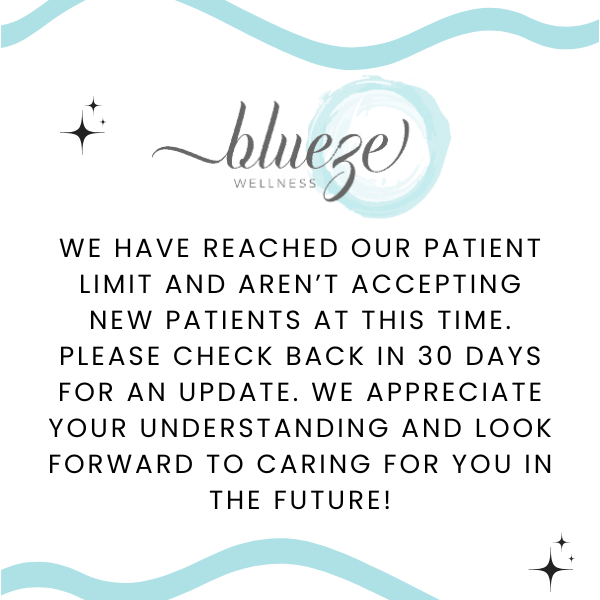
Blueze Wellness – Counseling Near Me Bloomington IL – Call Us at 309-585-2116 – Location: 2412 East Washington Street, Suite 4B, Bloomington IL
It’s normal to feel “down” on occasion. However, if you frequently experience feelings of despair and hopelessness you might suffer from depression. Depression is more than simply feeling sadness in reaction to setbacks and challenges in daily life. Without a doubt, depression alters how one thinks and functions during day-to-day activities. It can affect your abilities at the workplace as well as impede healthy sleep and eating patterns. Additionally, depression takes away your capacity to enjoy life. Getting through each day can become overwhelming.
There can be some differences in the way people experience depression. For example, some may feel continual doom, while others experience lifelessness and ongoing apathy. Still others can go through periods of anger and restlessness. Regardless of how you experience it, depression can develop into a significant health problem if you don’t seek treatment. It is helpful to remember that emotions such as hopelessness are a symptom of depression and not your true reality.
Also, note that despite how much despair you’re feeling, you can improve and get better. It’s beneficial to understand what causes depression and recognize its various types and symptoms. Through Counseling Near Me Bloomington IL you’ll take useful steps toward overcoming depression.
Depression – Common Signs and Symptoms – Counseling Near Me Bloomington IL
Depression can vary from one person to another, but there are a number of symptoms that are relatively common. It’s important to be aware that some of these symptoms are simply part of daily life. However, when the symptoms are lasting and severe, it’s more likely you are suffering from depression.
Call Blueze Wellness at 309-585-2116
- -A feeling of hopelessness. A bleak viewpoint in which things will not improve no matter what you do.
- -No interest in activities you used to enjoy. You don’t have any desire to take part in hobbies or social activities. Another symptom is loss of interest in sex and the capacity to feel pleasure.
- -Sudden weight loss or gain, changes in appetite. An abrupt change of more than five percent of body weight can be a sign of depression.
- -Difficulty sleeping, changes in sleeping patterns. Without a doubt, depression can cause insomnia and disrupt a healthy sleep schedule.
- -Anger or frequent irritability. Feelings of agitation and restlessness. Depression can make one impation and quick to anger. It can shorten your temper, making you feel as though people around you are getting on your nerves.
- -Low energy. Another common symptom of depression is continual fatigue and sluggishness. Your entire body can feel heavy and low on energy. Even minor tasks can feel exhausting or take a lot longer to finish than they should.
- -Low self-esteem, self-loathing. Feelings of guilt or worthlessness. You’re very critical of yourself for what you perceive as faults and errors.
- -Reckless, dangerous behavior. You take part in behaviors that are unhealthy, even putting yourself in hazardous situations. For example, substance abuses, gambling or reckless driving.
- -Problems concentrating. Depression makes it difficult to focus and make sound decisions.
- -Unexplained physical pain, headaches. An abrupt increase in unpleasant physical aches and pains can be a part of depression and anxiety.
There are some illnesses that have a particular medical cause, which makes treating them somewhat straightforward. However, depression is much more complex. There are some medications that can trigger symptoms of depression in some people. For example, opioid painkillers, barbiturates or even some varieties of blood pressure medications.
Learn More About Coping with Depression – Blueze Wellness – Call 309-585-2116
But most frequently, depression results from a mix of biological, social and psychological factors. Naturally, these may vary significantly from person to person.
Despite what you might see across various media, depression is not solely due to chemical imbalances within the brain. Certainly, biological issues can play a major role in causing depression. For instance, hormonal changes, suppression of the immune system or abnormal activities in specific areas of the brain. Also, nutritional problems and deficiencies can be a factor in depression too. There are also factors like trauma, low self-esteem, substance abuse and isolation that play a part as well.
Risk factors that can leave you more susceptible to depression:
Instead of one cause, there can be a combination of issues that lead to development of depression.
For example, diagnoses of a major medical problem, unemployment, divorce or other stressors can prompt alcohol or substance abuse. As a result, you could start to withdraw from friends of family. The combination of these factors could then lead to depression.
The following are a few main examples of the factors that make people more vulnerable to depression:
-Isolation, loneliness. There is a strong connection between depression and lonliness. Lack of a social supportive structure increases the risks of depression. People with depression will often withdraw from social situations, which only enhances isolation. Having family or friends to communicate with can help maintain a healthy outlook on your emotional issues. It’s easier to identify and resolve problems with help of a support structure that facing them alone.
-Relationship difficulties. Certainly, a network of supportive personal relationships can be essential for positive mental health. However, abusive or unhappy relationships will predictably bring the opposite effects, increasing risk of depression.
Blueze Wellness – Counseling Near Me Bloomington IL – Call 309-585-2116
-Stressful, traumatic experiences. Significant life changes, like divorce, job loss or passing of a loved one can impact practically anyone. Consequently, these changes can carry high levels of emotional stress and susceptibility to depression.
Chronic pain or illness. Ongoing pain or diagnoses of an illness like heart disease or cancer can cause feelings of despair and depression.
-Hereditary predisposition to depression. Because it tends to run in families, some people are genetically susceptible to depression. But simply because a family member suffers with depression, that doesn’t necessarily indicate you will, too. Relationships, lifestyle choices and other factors matter along with genetics.
-Personality. Whether you inherit personality traits or they result from experiences, they can affect your risk of developing depression. You might be at higher risk if you worry continually, have a negative viewpoint on life or have low self-esteem.
-Abuse or trauma in early childhood. Early life stressors can make people more susceptible to a range of various health conditions which includes depression.
-Drug and alcohol abuse. Substance abuse may frequently occur along with depression. It’s not unusual for people suffering from it to consume drugs or alcohol as a way of self-medication. They turn to substances to manage their mood or to cope with challenging emotions. If you’re at risk of depression, consuming drugs or alcohol can certainly make things worse. Also, there is evidence that people who consume opioid painkillers increase their risk of depression.
Whether you are able to identify what’s causing your depressive symptoms or not, recognizing the problem is essential. Reach out for help and learning more about helpful strategies that will help you feel better.
Visit Blueze Wellness a 2412 East Washington Street, Suite 4B, Bloomington IL.
At Blueze Wellness, our staff can help you initiate lifestyle changes that transform your mental and physical wellness. Access professional Counseling Near Me Bloomington IL to make improvements to your health.

